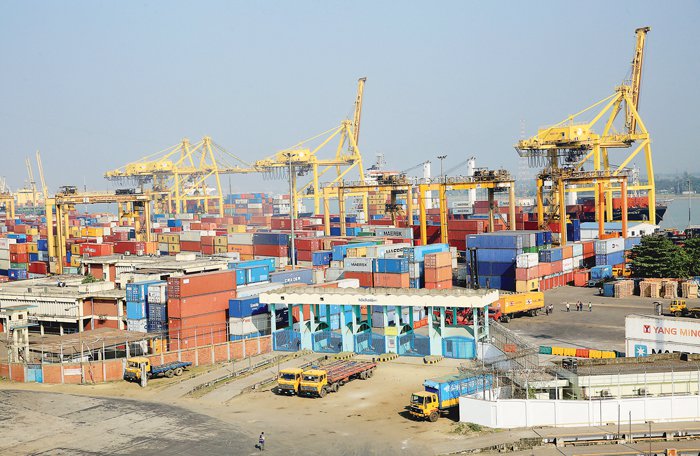
A file photo shows a man counting US dollar notes in the capital Dhaka. The volume of foreign currencies held by the country’s commercial banks dropped in October amid a severe dollar crisis. — New Age photo
The volume of foreign currencies held by the country’s commercial banks dropped in October amid a severe dollar crisis.
The gross foreign currency balance with the banks dropped to $5,924 million in October from $6,174 million in September.
The gross balance in October 2022 and December 2022 were $4,505 million and $4,795 million respectively.
The balance included nostro accounts and investments in offshore banking units.
Banks have been struggling with a severe dollar crisis in recent times and subsequently have failed to settle many letter of credit payments.
Export earnings edged up to $12.93 billion in the July-September period from $11.77 billion in the same period in the past year.
However, inflow of remittances dropped by 4 per cent to $6.88 billion in July-October of FY24 compared with that of $7.17 billion in the same period of the previous financial year.
Starting from April 2022, the government and the Bangladesh Bank embarked on a series of initiatives to curb surge in imports, bankers said.
The measures included import restrictions on luxury items and non-essential products.
As a result of such measures, imports declined by 23.77 per cent in July-September of FY24 compared with those in the same period of the previous financial year.
The BB strengthened monitoring on imports, which might help prevent a sudden outflow of foreign currencies.
The BB is continuously selling dollars to the banks, which also contributed to improving the dollar shortage on the market.
Over the past 28 months, the central bank sold approximately $26 billion from its foreign exchange reserves.
This included $4.5 billion allocated to banks in July-October of the current financial year 2023-24, $13.5 billion in FY23 and $7.62 billion in FY22.
The dollar sales had unintended consequence of reducing the foreign exchange reserves of the BB, while also mopping up local currency, which created another problem — a liquidity crisis in the banking sector.
Bankers said that the dollar holding by banks was not substantial enough to alleviate the ongoing dollar crisis on the financial market.
As there is a shortage of dollars, many import payments were delayed or renegotiated, giving banks more time to acquire the necessary foreign currencies.
The overall level of foreign exchange reserves in the country still is insufficient to meet the high demand for dollars.
Only a small number of banks hold a significant portion of the dollar reserves in Bangladesh, with many other banks experiencing a deficit in their dollar reserves.
The foreign currency reserve, according to IMF guidelines, dropped to $19.5 billion on November 22 as the Bangladesh Bank increased dollar sales to banks to tackle the greenback crisis on the market.
Therefore, the exchange rate rose sharply to Tk 110.5 from Tk 91 against the US dollar within a year.
New Age









